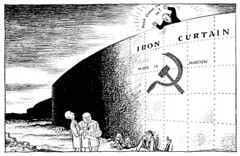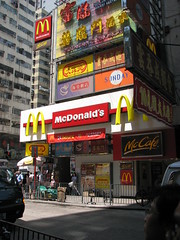Final AP English Literature Terms Flashcards
sources of definitions are The Princeton Review (TPR) and Barron's AP study guides. and class notes that Mr. Enns distributed :)
| 6529725366 | tragedy | a form of literature in which the hero is destroyed by some character flaw and a set of forces that cause the hero considerable anguish, or even death | 0 | |
| 6529725367 | adage | a saying/proverb containing a truth based on experience and often couched in metaphorical language | 1 | |
| 6529725368 | allegory | a story in which the narrative/characters carry an underlying symbolic, metaphorical or possibly an ethical meaning | 2 | |
| 6529725369 | anachronism | a person, scene, event, or other element in literature that fails to correspond with the time/era in which the work is set | 3 | |
| 6529725370 | analogy | a comparison that points out similarities between two dissimilar things | 4 | |
| 6529725371 | antithesis | a rhetorical opposition or contrast of ideas by means of a grammatical arrangement of words, clauses, or sentences | 5 | |
| 6529725372 | aphorism | a short, pithy statement of a generally accepted truth or sentiment | 6 | |
| 6529725373 | apostrophe | a speech that addresses a person/personified thing not present | 7 | |
| 6529725374 | archetype | an abstract or ideal conception of a type; a perfectly typical example; an original model/form | 8 | |
| 6529725375 | assonance | the repetition of two or more vowel sounds in a group of words or lines in poetry and prose | 9 | |
| 6529725376 | ballad | a simple narrative verse that tells a story that is sung or recited; a long narrative poem, usually in very regular meter and rhyme, typically has a naive, folksy quality | 10 | |
| 6529725377 | Bildungsroman | a German word referring to a novel structured as a series of events that take place as the hero travels in quest of a goal | 11 | |
| 6529725378 | blank verse | poetry written in iambic pentameter, the primary meter used in English poetry and the works of Shakespeare and Milton. its lines generally do not rhyme | 12 | |
| 6529725379 | cacophony | grating, inharmonious sounds | 13 | |
| 6529725380 | caesura | a pause somewhere in the middle of a verse, often (but not always marked by punctuation) | 14 | |
| 6529725381 | catharsis | a cleansing of the spirit brought about by the pity and terror of a dramatic tragedy | 15 | |
| 6529725382 | antihero | a protagonist who is markedly unheroic: morally weak, cowardly, dishonest, or any number of other unsavory qualities | 16 | |
| 6529725383 | colloquialism | this is a word or phrase used in everyday conversational English that isn't a part of accepted "schoolbook" English | 17 | |
| 6529725384 | connotation | the suggest or implied meaning of a word/phrase | 18 | |
| 6529725385 | consonance | the repetition of two or more consonant sounds within a group of words or a line of poetry | 19 | |
| 6529725386 | couplet | a pair of lines that end in rhyme | 20 | |
| 6529725387 | heroic couplet | two rhyming lines in iambic pentameter are called this | 21 | |
| 6529725388 | denotation | the literal, dictionary definition of a word | 22 | |
| 6529725389 | denouement | the resolution that occurs at the end of a play or work or fiction | 23 | |
| 6529725390 | deus ex machina | in literature, the use of an artificial device or gimmick to solve a problem | 24 | |
| 6529725391 | syntax | the ordering and structuring of the words in a sentence | 25 | |
| 6529725392 | dramatic irony | when the audience knows something that the characters in the drama do not | 26 | |
| 6529725393 | elegy | a poem or prose selection that laments or meditates on the passing/death of something/someone of value | 27 | |
| 6529725394 | end stopped | a term that describes a line of poetry that ends with a natural pause often indicated by a mark of punctuation | 28 | |
| 6529725395 | enjambment | the continuation of a syntactic unit from one line or couplet of a poem to the next with no pause | 29 | |
| 6529725396 | epic | an extended narrative poem that tells of the adventures and exploits of a hero that is generally larger than life and is often considered a legendary figure | 30 | |
| 6529725397 | epitaph | lines that commemorate the dead at their burial place. usually a line or handful of lines, often serious or religious, but sometimes witty and even irreverent | 31 | |
| 6529725398 | epigram | a concise but ingenious, witty and thoughtful statement | 32 | |
| 6529725399 | euphony | when sounds blend harmoniously; pleasing, harmonious sounds | 33 | |
| 6529725400 | epithet | an adjective or phrase that expresses a striking quality of a person or thing | 34 | |
| 6529725401 | euphemism | a mild or less negative usage for a harsh or blunt term | 35 | |
| 6529725402 | extended metaphor | a series of comparisons between two unlike objects that occur over a number of lines | 36 | |
| 6529725403 | fable | a short tale often featuring nonhuman character that act as people whose actions enable the author to make observations or draw useful lessons about human behavior. i.e Orwell's "Animal Farm" | 37 | |
| 6529725404 | farce | a comedy that contains an extravagant and nonsensical disregard of seriousness, although it may have a serious, scornful purpose | 38 | |
| 6529725405 | foil | a secondary character whose purpose is to highlight the characteristics of a main character, usually by contrast | 39 | |
| 6529725406 | foot | the basic rhythmic unit of a line in poetry. it is formed by a combination of two or three syllables, either stressed or unstressed | 40 | |
| 6529725407 | free verse | a kind of poetry without rhymed lines, rhythm or fixed metrical feet | 41 | |
| 6529725408 | hubris | the excessive pride/ambition that leads to the main character's downfall | 42 | |
| 6529725409 | hyperbole | exaggeration/deliberate overstatement | 43 | |
| 6529725410 | implicit | to say or write something that suggests and implies but never says it directly or clearly | 44 | |
| 6529725411 | in medias res | Latin for "in the midst of things"; a narrative that starts not at the beginning of events but at some other critical point | 45 | |
| 6529725412 | inversion | switching customary order of elements in a sentence or phrase. when done badly it can give a stilted, artificial look-at-me-I'm-poetry feel to the verse. type of syntax | 46 | |
| 6529725413 | irony | a mode of expression in which the intended meaning is the opposite of what is stated, often implying ridicule or light sarcasm | 47 | |
| 6529725414 | periodic sentence | a sentence not grammatically complete until it has reached its final phrase; sentence that departs from the usual word order of English sentences by expressing its main thought only at the end | 48 | |
| 6529725415 | lyric | personal, reflective poetry that reveals the speaker's thoughts and feelings about the subject; the word is used to describe tone, it refers to a sweet, emotional melodiousness | 49 | |
| 6529725416 | litotes | a form of understatement in which the negative of the contrary is used to achieve emphasis or intensity | 50 | |
| 6529725417 | meter | the pattern of stressed and unstressed syllables found in poetry | 51 | |
| 6529725418 | metonymy | a figure of speech that uses the name of one thing to represent something else with which it is associated. e.g. "The White House says..." | 52 | |
| 6529725419 | objectivity | this treatment of a subject matter is an impersonal/outside view of events | 53 | |
| 6529725420 | subjectivity | this treatment of a subject matter uses the interior/personal view of a single observer and is typically colored with that observer's emotional responses | 54 | |
| 6529725421 | motif | a phrase, idea, event that through repetition serves to unify or convey a theme in a work of literature. | 55 | |
| 6529725422 | myth | an imaginary story that has become accepted part of the cultural or religious tradition of a group/society. often used to explain natural phenomena. | 56 | |
| 6529725423 | ode | a lyric poem usually marked by serious, respectful and exalted feelings toward the subject. | 57 | |
| 6529725424 | omniscient narrator | a narrator with unlimited awareness, understanding, and insight of characters, setting, background, and all other elements of the story | 58 | |
| 6529725425 | oxymoron | a phrase composed of opposites; a contradiction. juxtaposition of contradictory element to create a paradoxical effect | 59 | |
| 6529725426 | parable | like a fable or an allegory, it's a story that instructs; a story consisting of events from which a moral or spiritual truth may be derived | 60 | |
| 6529725427 | paradox | a statement that seems self-contradictory yet true | 61 | |
| 6529725428 | parallelism | repeated syntactical similarities used for effect | 62 | |
| 6529725429 | parody | an imitation of a work meant to ridicule its style and subject | 63 | |
| 6529725430 | pastoral | a work of literature dealing with rural life | 64 | |
| 6529725431 | pentameter | a verse with five poetic feet per line | 65 | |
| 6529725432 | picaresque novel | an episodic novel about a roguelike wanderer who lives off his wits. e.g. "Don Quixote", "Moll Flanders" | 66 | |
| 6529725433 | limited narrator | 3rd person narrator who generally reports only what one character (usually the main) sees, and who only reports the thoughts of that one privileged character. | 67 | |
| 6529725434 | objective narrator | 3rd person narr. who only reports on what would be visible to a camera, doesn't know what the character is thinking unless the character speaks of it. | 68 | |
| 6529725435 | first person narrator | this is a narrator who is a character in the story and tells the tale from his/her POV. when the narrator is crazy, a liar, very young, or for some reason not entirely credible, the narrator is "unreliable" | 69 | |
| 6529725436 | prelude | an introductory poem to a longer work of verse | 70 | |
| 6529725437 | pun | the usually humorous use of a word in such a way to suggest two or more meanings | 71 | |
| 6529725438 | quatrain | a four-line poem or a four-line unit of a longer poem | 72 | |
| 6529725439 | refrain | a line or set of lines repeated several times over the course of a poem | 73 | |
| 6529725440 | realism | the depiction of people, things, and events as they really are without idealization or exaggeration for effect | 74 | |
| 6529725441 | rhyme scheme | the patterns of rhymes within a given poem i.e. abba | 75 | |
| 6529725442 | rhythm | the pattern of stressed and unstressed syllables that make up a line of poetry. similar to meter | 76 | |
| 6529725443 | satire | a literary style used to poke fun at, attack or ridicule an idea, vice, or foible, often for the purpose of inducing change. great subjects for this include hypocrisy, vanity and greed, especially if those characteristics have become institutionalized in society | 77 | |
| 6529725444 | sentimental | a term that describes characters' excessive emotional response to experience; also nauseatingly nostalgic | 78 | |
| 6529725445 | scansion | the act of determining the meter of a poetic line. | 79 | |
| 6529725446 | sonnet | a popular form of verse consisting of fourteen lines and a prescribed rhyme scheme. two types: Shakespearean and Petrarchan | 80 | |
| 6529725447 | soliloquy | a speech spoken by a character alone on stage. meant to convey the impression that the audience is listening to the character's THOUGHTS. unlike an aside, it is not meant to imply that the actor acknowledges the audience's presence | 81 | |
| 6529725448 | stream of consciousness | a style of writing in which the author tries to reproduce the random flow of thoughts in the human mind, e.g. Ernest Hemingway | 82 | |
| 6529725449 | stock characters | standard or cliched character types: the drunk, the miser, the foolish girl, etc. | 83 | |
| 6529725450 | style | the manner in which an author uses and arranges words, shapes ideas, forms sentences and creates a structure to convey ideas | 84 | |
| 6529725451 | synecdoche | a figure of speech in which a part signifies the whole or the whole signifies the part | 85 | |
| 6529725452 | theme | the main idea or meaning, often an abstract idea upon which a work of literature is built | 86 | |
| 6529725453 | tone | the author's attitude toward the subject being written about. it's the characteristic emotion that pervades a work or part of a work | 87 | |
| 6529725454 | tragic flaw | in a tragedy, this is the weakness of a character in an otherwise good individual that ultimately leads to his demise | 88 | |
| 6529725455 | travesty | a grotesque parody | 89 | |
| 6529725456 | truism | a way-too-obvious truth | 90 | |
| 6529725457 | utopia | an idealized place. imaginary communities in which people are able to live in happiness, prosperity and peace. Sir Thomas More came up with this idea. | 91 | |
| 6529725458 | verbal irony | a discrepancy between the true meaning of a situation and the literal meaning of the written or spoken words | 92 | |
| 6529725459 | verse | a synonym for poetry. also a group of lines in a song or poem; also a single line of poetry | 93 | |
| 6529725460 | verisimilitude | similar to the truth; the quality of realism in a work that persuades readers that they are getting a vision of life as it is | 94 | |
| 6529725461 | voice | the real or assumed personality used by a writer or speaker. a verb is in the active voice when it expresses an action performed by its subject. a verb is in the passive voice when it expresses an action performed upon its subject or when the subject is the result of the action. Active: The crew raked the leaves. Passive: The leaves were raked by the crew. | 95 | |
| 6529725462 | anastrophe | inversion of the natural or usual word order | 96 | |
| 6529725463 | asyndeton | deliberate omission of conjunctions between a series of related clauses. used to produce a hurried rhythm in the sentence. | 97 | |
| 6529725464 | polysyndeton | the deliberate use of many conjunctions. its effect is to slow down the rhythm of the sentence | 98 | |
| 6529725465 | anaphora | repetition of the same words or group of words at the beginning of successive clauses. e.g. "I have a dream..." | 99 |












































































































